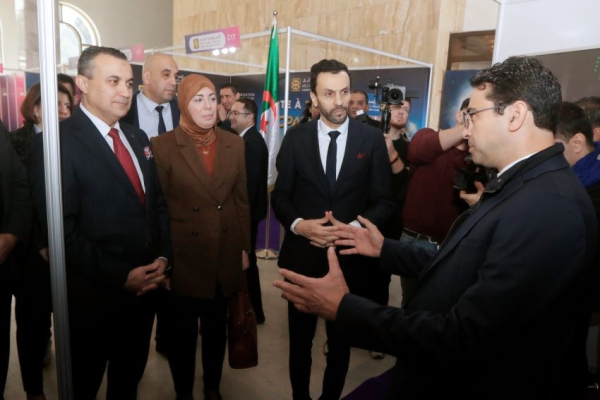AI is transforming various sectors and enhancing productivity. African nations are increasingly recognizing its potential and seeking to invest in this field to harness its economic benefits, foster innovation, and strengthen their position on the international stage.
Algeria aims for artificial intelligence (AI) to contribute 7% of its gross domestic product (GDP) by 2027, Minister of Post and Telecommunications Sid Ali Zerrouki said at the third edition of the CTO Forum Algeria on Monday, February 17. The initiative seeks to diversify the national economy and position the country among global AI leaders.
To achieve this objective, Algeria has invested in top-tier universities specializing in AI, robotics, and mathematics. Additionally, incubators have been deployed nationwide to foster innovation and support the emergence of technology startups.
State-owned telecom operator Algérie Télécom has committed to establishing a 1.5 billion dinar ($11.1 million) investment fund to support startups specializing in AI, cybersecurity, and robotics. This initiative aligns with a presidential strategy to create 20,000 startups as quickly as possible.
In parallel, the government is betting on training programs such as Scale Centers to enhance skills in AI, cybersecurity, and cloud computing, particularly targeting young people without a university education. The National AI Commission has also launched an ambitious strategy to structure and energize this key sector.
Strengthening Digital Infrastructure
To support this growing AI ecosystem, Algeria has made significant investments in digital infrastructure. The government has installed 265,000 kilometers of fiber optic cable and connected 1,400 sites with 4G technology, aiming to improve coverage in remote areas. Additionally, it plans to deploy 7,000 new 4G stations by 2025 to boost connectivity and increase internet speeds.
If successful, this strategy could profoundly transform Algeria’s economy by enhancing productivity in key sectors such as industry, agriculture, and services. AI is expected to play a central role in this transformation by optimizing resource management, automating processes, and facilitating data-driven decision-making.
By fostering the emergence of local startups capable of developing advanced technological solutions, Algeria could not only enhance its economic efficiency but also position itself as an exporter of technology. In this regard, Olumide Balogun, Google’s director for West Africa, highlights that AI could add up to $1.5 trillion to Africa’s GDP by 2030. This projection underscores the importance of Algeria’s full commitment to AI development to capture a significant share of this rapidly expanding market.
By Samira Njoya,
Editing by Sèna D. B. de Sodji



















